Overwater bungalows started as a bottom-tier accommodation. Today, they're a status symbol in the luxury travel world.
Overwater bungalows originated nearly 60 years ago in Tahiti.
The first rooms cost $240 a night. Today, experts say they're a staple in the luxury travel market.
The accommodations have since expanded in region, size, and amenities.
The first overwater bungalow had a thatched roof, a window peering into the ocean, and a ladder leading into the water.
Fast-forward 60 years, and overwater villas can now feature multi-story water slides, infinity pools, and personal butlers. They can also cost upwards of $8,000 a night at some of the world's ritziest resorts.
There's no doubt the accommodation style has expanded since its start in Tahiti in 1967, and travel experts agree they aren't going away anytime soon. Instead, the overwater villa has become a status symbol of luxury travel.
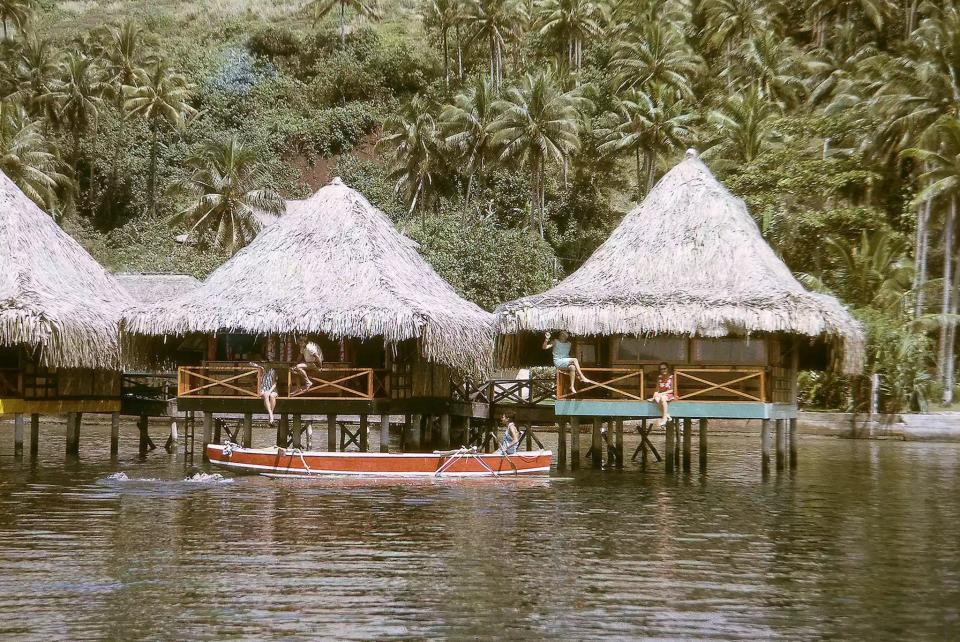
The start of the overwater bungalows
In 1959, three Americans left California for Tahiti's lush landscapes and crystal waters.
The men — Jay Carlisle, Hugh Kelley, and Donald McCallum — relocated with plans to start vanilla farming. When they learned the land they purchased wasn't suitable for vanilla, they turned to hospitality, Vaihiria Kelley, the daughter of Hugh Kelley, told Business Insider.
They purchased a four-room, run-down property on the island of Moorea and named it Bali Hai. The trio became known as the Bali Hai Boys.
Their timing was ideal, Kelley said. Shortly after renovating the hotel, a new airport connected international travelers to Tahiti, which had previously only been accessible by boat. In 1962, Life Magazine wrote a seven-page feature on Tahiti and the Bali Hai Boys. Tourism boomed.
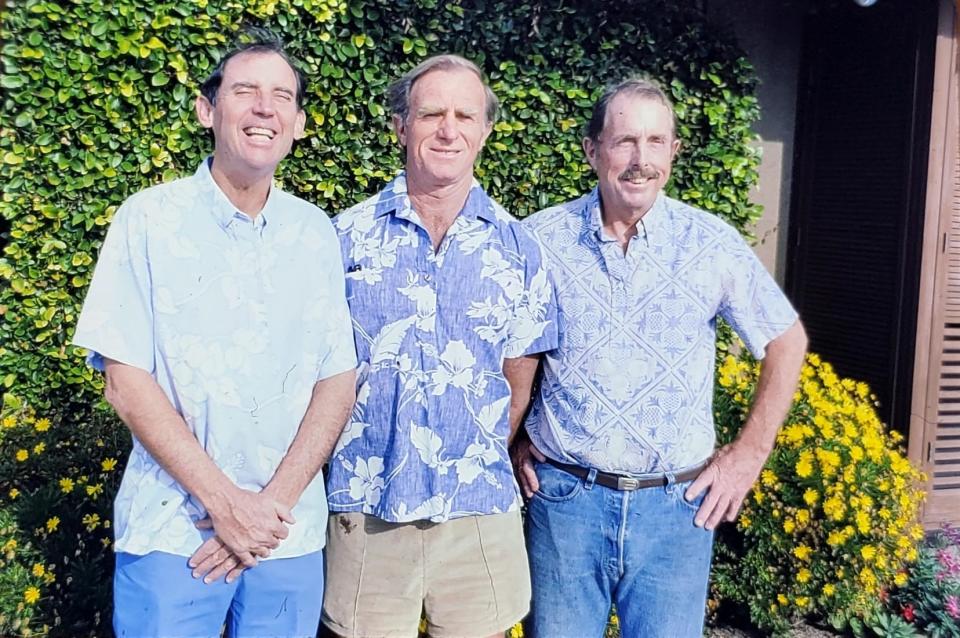
After that, the men purchased two more hotels on two other islands.
As the hotels grew in popularity, they needed to grow in size. Two of the properties had the land to expand, but the third hotel on the island of Raiatea didn't, Kelley said. Instead, it was surrounded by roads, neighboring resorts, and the ocean.
"The overwater bungalow didn't start out of, 'Oh, let's think of something really innovative,'" Kelley said. "It really came out of a need."
Without land to expand, the ocean was their only option. Nearby, on the island of Huahine, traditional Tahitian fishing huts lined the coast.
That's where the trio found their inspiration, Kelley said. The basic fishing huts sat on coconut trunk pillars and had thatched roofs. Mimicking the style, they built three overwater bungalows to join the garden and pool bungalows that also filled the Raiatea property in 1967.
Kelley said the men assumed the overwater bungalows were the least desirable at the time and priced them at just $240 a day, including meals.
"They didn't expect that it would be so popular," Kelley said.
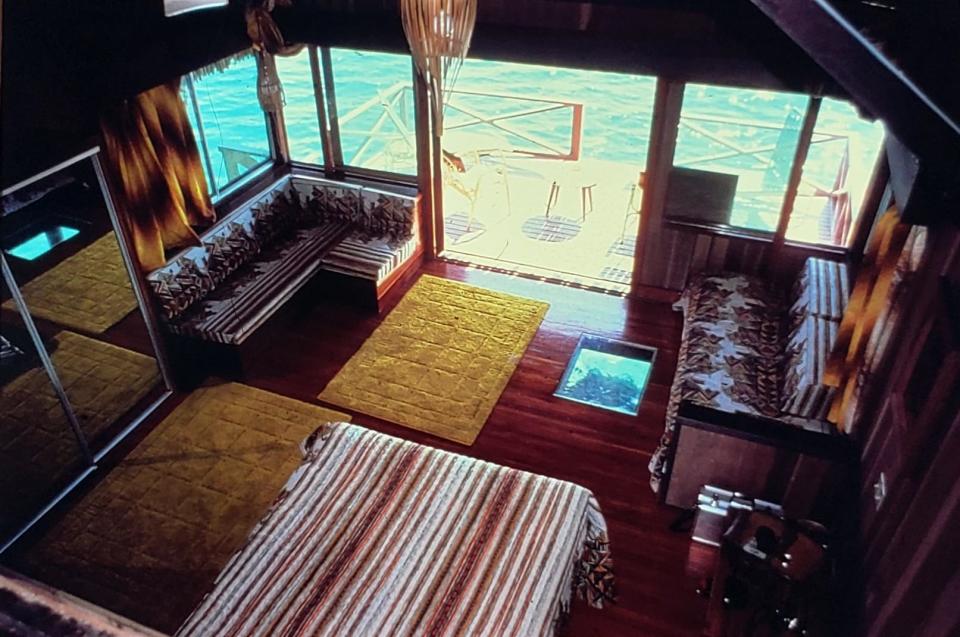
Vacationers were enchanted by falling asleep to the sound of the ocean and waking up to dive straight into the water. After realizing they had a successful concept, Kelley said the Bali Hai Boys began adding overwater bungalows to their two other properties. It wasn't long before other resorts on islands across French Polynesia started copying the design.
Kelley, who grew up in Moorea, remembers watching her dad welcome guests to the hotel. Celebrities and actors traveled across the world to sleep in the overwater bungalows.
"When you see the pictures now, you think, 'Oh my God, it's very '70s," Kelley said. "But for that time, it was very luxurious."
Nearly 60 years later, it remains a luxurious vacation, Ronan McLoughlin, the owner of Dream Overwater Bungalows, a website that compiles resorts around the world, told BI.
Today, there are about 250 resorts that offer accommodations over the water, with many being four or five-star resorts.
The original resort on Raiatea has since closed, but Kelley said she sees a bit of her dad's vision each time she sees an overwater bungalow.
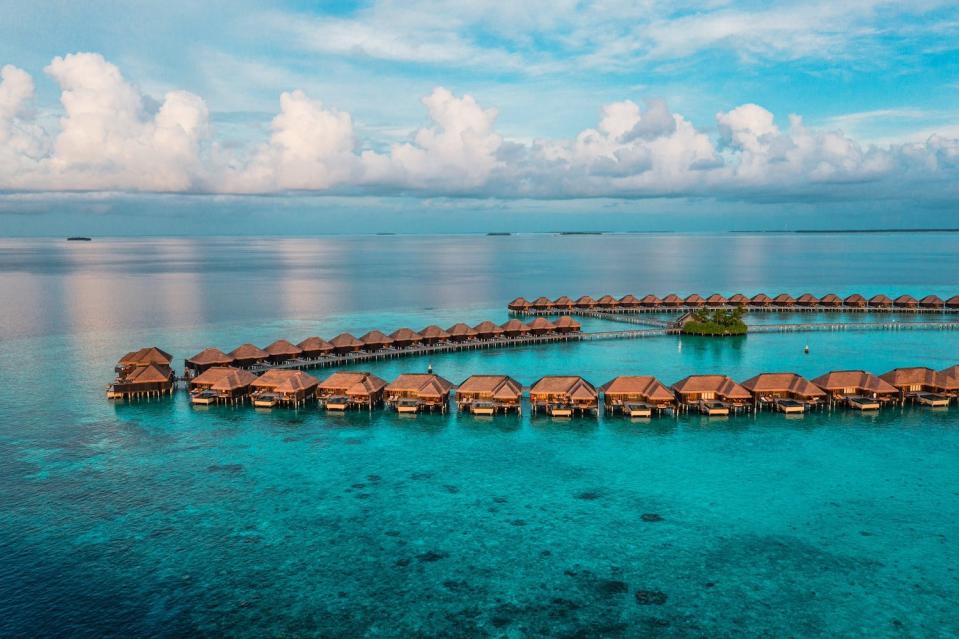
While the concept has existed for decades, experts say it remains a luxury staple
Jason Toms has spent the last four years helping travelers build tailor-made vacations in the Maldives at the luxury travel company Audley Travel.
And if someone is traveling to the Maldives, chances are they're looking to sleep in an overwater villa.
"It's the signature way to stay in the Maldives," Toms told BI. "My clients, who are typically traveling from the US, 95% are asking for overwater villas."
Lucy Rudgard, the senior oceans and islands expert at the luxury tour operator Scott Dunn, agreed, adding that the appeal of overwater stays goes beyond just the Maldives.
"It's always No. 1 on people's list," she said, noting that travelers are also willing to pay a lot for the experience of sleeping above water. In destinations like the Maldives and Bora Bora, overwater villas can cost twice as much as a beachside resort.
For Rudgard's clients, the entry cost for a week in an overwater villa might be around $30,000, but she estimates some clients have spent more than $250,000 for overwater vacations.
McLoughlin said these high costs are also partly why the accommodations have remained a luxury staple.
"There's a status to it as well because they're automatically expensive in most places," McLoughlin said since it can be expensive to build the bungalows.
On top of that, it's no easy feat for many US travelers to get to some of these faraway destinations, which adds another layer of luxury to the accommodation.
"If you were to be seen in an overwater bungalow, it meant that either you're in the Maldives or in Bora Bora or somewhere fancy," McLoughlin said.
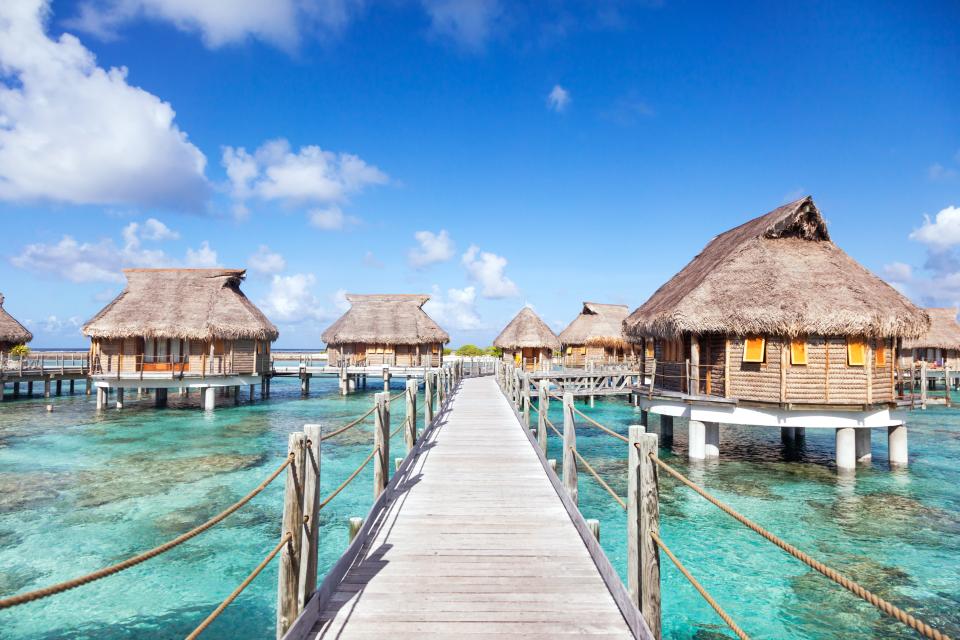
Overwater resorts continue to pop up around the world
For decades, overwater bungalows were largely limited to the Maldives and French Polynesia. But within the last eight years, the concept has expanded to the Caribbean, a destination much closer to most Americans.
But building an overwater bungalow in the Caribbean can be a hard task to accomplish, Danny Kalenov, the developer behind Six Senses Belize, an overwater bungalow resort that's set to open in 2026, told BI.
Places like the Maldives and Bora Bora are ideal for overwater bungalows because they are dotted with lagoons, atolls, and calm waters. Plus, hurricanes are few and far between.
As the vacation style became one that everyone dreamed of, builders were determined to offer the experience of sleeping above water in the Caribbean.
In 2016, the Sandals Resort in Montego Bay, Jamaica, became the first overwater bungalow resort in the area.
"Now, they've started to pop up everywhere in the last seven or six years," McLoughlin said.
Today, Dream Overwater has cataloged nine Caribbean locations home to more than a dozen overwater bungalow resorts.
According to Kalenov, the demand for the experience is still high, with Americans wanting to travel closer to home. That's why the luxury hotel brand Six Senses is building a private island resort with 40 overwater villas off Belize's Ambergris Caye.
The company is using a custom-built barge made specifically for shallow water and specialized equipment. Kalenov compared the process to "filling a swimming pool with a teaspoon."
And while the construction might be more challenging than a traditional resort, he said the end product — and experience he's creating — will be worth it.
It's not just Six Senses that's betting on overwater villas. Royalton Chic Antigua is set to open this spring with 12 overwater suites, and Sandals in St. Vincent and the Grenadines opened at the end of March with 10 two-story villas starting at $1,570-a-person per night.
"We believe that this type of experience is the future of luxury travel and the future of hospitality in general," Kalenov said.
Read the original article on Business Insider

